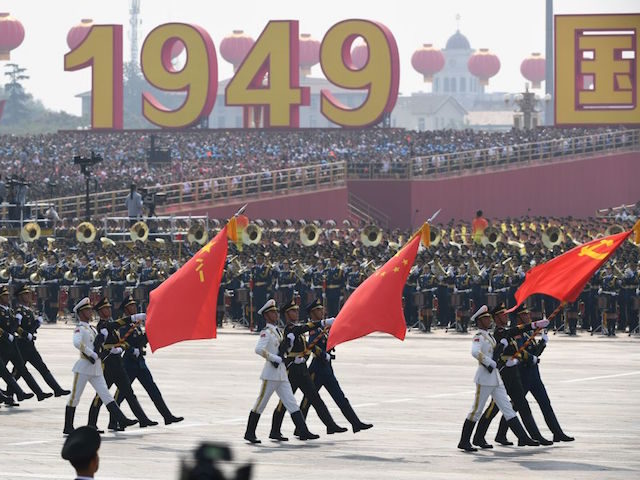Indiana Attorney General Todd Rokita announced Tuesday that he has launched an investigation into Valparaiso University’s association with Confucius Institutes, which are a campus-based propaganda arm of the Chinese Communist Party.
“Hoosiers deserve answers and transparency into the impact of these institutes on our schools and students,” Rokita said in a statement.
“Our investigation seeks to uncover whether the Chinese government has attempted to exert political influence and manipulate the attitudes and beliefs of Hoosiers through their Confucius Institutes,” the attorney general added. “Our office will use every tool at our disposal to protect Hoosiers and put liberty into action.”
Rokita went on to say that “the investigation is aimed at identifying and getting to the bottom of the true intent of any relationships between Valparaiso University’s programming and the Chinese Communist Party.”
“The Chinese Communist Party has made no secret regarding the intent and purposes of Confucius Institutes embedded in American universities,” Rokita affirmed, noting that in 2010 Chinese “Minister of Propaganda” Liu Yunshan said the institutes exist to “coordinate the efforts of overseas and domestic propaganda, [and] further create a favorable international environment for us.”
“Valparaiso University reported receiving more than $1.1 million from the Chinese government between 2010 and 2019,” Rokita continued in his Tuesday statement, adding:
These documents filed by Valparaiso University with the U.S. Department of Education do not indicate precisely how this funding was used, but the university’s webpages explaining the partnership make clear that not only did programs target Valparaiso University students but also younger students through sponsorship of programs at area K-12 Indiana schools.
The Attorney General’s office goes on to reference a 2019 U.S. Senate Homeland Security & Governmental Affairs Permanent Subcommittee on Investigations bipartisan report that came to the following conclusions:
Chinese directors and teachers at Confucius Institutes pledge to protect Chinese national interests. Chinese teachers should “conscientiously safeguard national interests,” and their contract terminates if they “violate Chinese law” or “engage in activities detrimental to national interests.”
Since 2006, the Chinese government has provided more than $158 million to more than 100 U.S. schools for Confucius Institutes.
The Chinese Communist Party controls nearly every aspect of Confucius Institutes at U.S. schools, including its funding, staff, and all programming. It even has veto authority over events and speakers.
The Chinese government also funds teachers for Confucius Classrooms in the United States, which teach Chinese language and culture in K-12 schools. There are more than 1,000 Confucius Classrooms worldwide and more than 500 in the United States. Expanding the Confucius Classrooms program is a priority for the Chinese Communist Party.
There is little transparency in the selection of Chinese directors and teachers who staff Confucius Institutes. They are vetted and hired by the Chinese government, and U.S. universities choose from a pool of applicants approved by the Chinese Communist Party.
While the Indiana attorney general investigates Valparaiso’s association with the Chinese Communist Party, the university appears to have other, more pressing matters to address, such as doing away with its mascot with longtime “Crusaders” mascot.
The announced on Tuesday that it has officially replaced its “Crusaders” moniker with the “Beacons” after earlier claiming earlier this year that the term has been associated with “hate groups” and “hate speech.”
You can follow Alana Mastrangelo on Facebook and Twitter at @ARmastrangelo, and on Instagram.

COMMENTS
Please let us know if you're having issues with commenting.